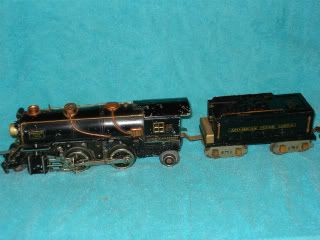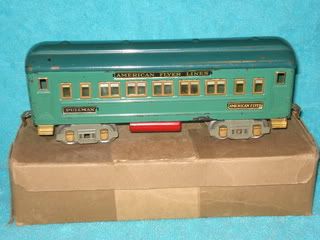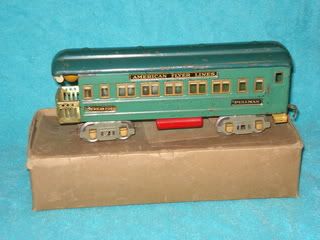Well your train is 3-rail O gauge, so you're on the right forum. But it's pre-war so maybe the guys over on the "tinplate" forum might be most knowledgeable about this. i'm no expert, but i'll give a try and anybody please correct me.
AF pre war is notoriously difficult to sort out numbers. they had the same equipment given different numbers, and the same numbers assigned to different equipment at different times. locos were sometimes given the set number, and vice versa. Also, AF would give a number to a loco/tender combination which was different from the number of either the loco or the tender. And then they would change all the numbers to recombine things into different sets. And the record keeping wasn't all that great, so sometimes we'll just never know.
what you have seems to be pretty clearly what greenberg calls the type 7 boiler/cab. This casting was used on several locomotives. the first was the 3308 locomtive introduced in 1932. But it came with a type 6, 4-wheel tender, and it had air tanks in the castings between and above the drive wheels. yours does not have the air tanks, and your tender is the type 3 tender.
in 1938, the type 7 boiler on a locomotive called the 4677 which came with the type 3A tender. "Greenberg's guide to american flyer pre war O gauge" page 34 (1987). The air tanks had been removed in this later version to improve access to the motor brushes. If my reading of Greenberg is right, I think this is what you have.





